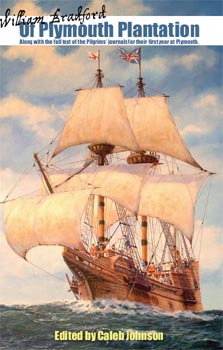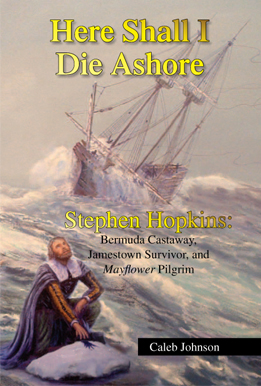Francis Eaton
BAPTISM: 11 September 1596 at St. Thomas, Bristol, Gloucestershire, England, son of John and Dorothy (Smith) Eaton.
FIRST MARRIAGE: Sarah, probably around 1618.
SECOND MARRIAGE: Dorothy, shortly before the 1623 Division of Land at Plymouth.
THIRD MARRIAGE: Christiana Penn, probably about 1626 at Plymouth.
CHILDREN (by Sarah): Samuel.
CHILDREN (by Christiana): Rachel, Benjamin, and "an ideote" (i.e. mentally disabled) whose name is not recorded.
DEATH: Between 25 October and 8 November 1633 at Plymouth.
yDNA HAPLOGROUP: R-M269 (R-FGC53179)
Francis Eaton was baptized in 1596 in Bristol, Gloucester, England, the son of John and Dorothy (Smith) Eaton. Nearly all of Francis Eaton's siblings died in 1603/1604, apparently due to a sickness that had spread throughout the household. He and brother Samuel did survive; Francis would name his first son Samuel.
Francis took up the profession of house carpenter. He married his first wife, Sarah, probably around 1618, and they had their first child Samuel in late 1619 or early 1620. Francis, Sarah, and "sucking" child Samuel came on the Mayflower to Plymouth in 1620. Sarah died the first winter at Plymouth, and Francis then remarried to Dorothy, the maidservant of John Carver, sometime before 1623. John Carver had died in April 1621, and his wife Katherine died a few weeks later, so perhaps the marriage occurred not long thereafter. In the 1623 Division of Land at Plymouth, Francis Eaton received four shares: one for himself, one for his deceased first wife Sarah, one for Samuel, and one for his current wife Dorothy, all of whom came on the Mayflower.
Dorothy died sometime shortly thereafter: no children are knownfrom their marriage. Francis then married, about 1626, to Christiana Penn, and they had three children together: Rachel, Benjamin, and a child that was called "an ideote" that was still living in 1651, but whose name has not survived.
Francis Eaton himself died in 1633, apparently suffering the same fate as his siblings in childhood, dying of a disease that spread through Plymouth that autumn. Francis Eaton's estate included one cow and a calf, two hogs, fifty bushels of corn, a black suit, a white hat and a black hat, boots, saws, hammers, an adze, square, augers, a chisel, boards, fishing lead, and some kitchen items.




